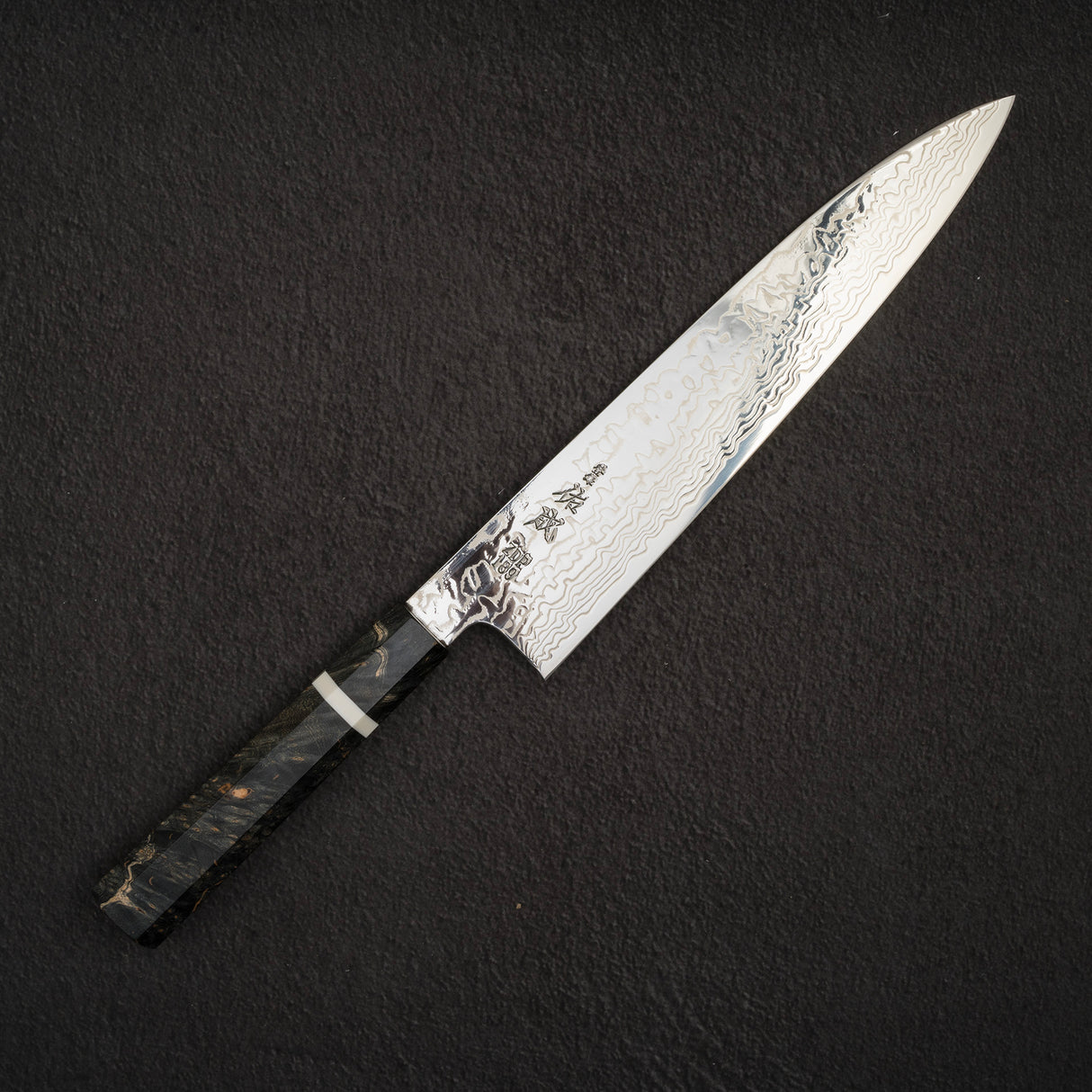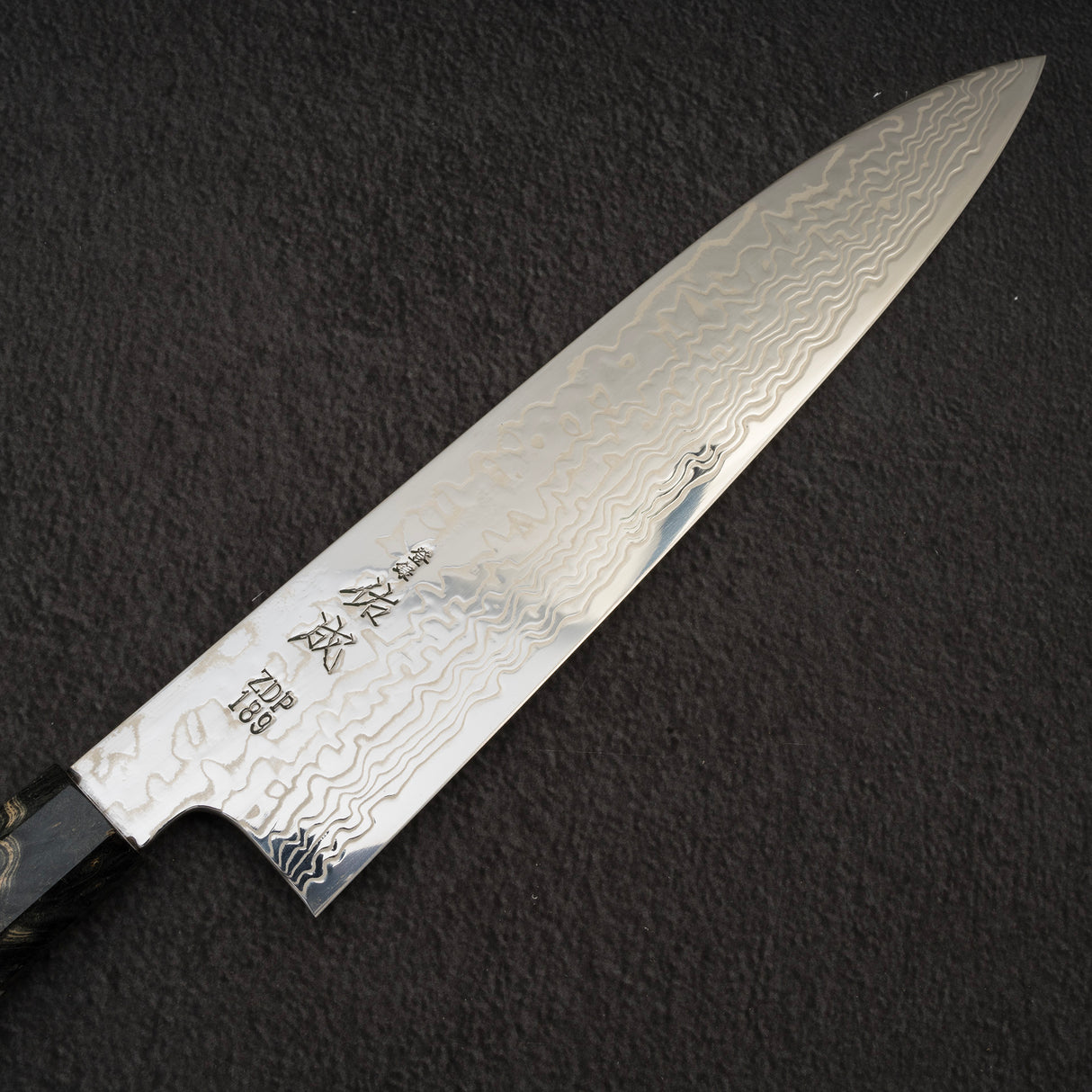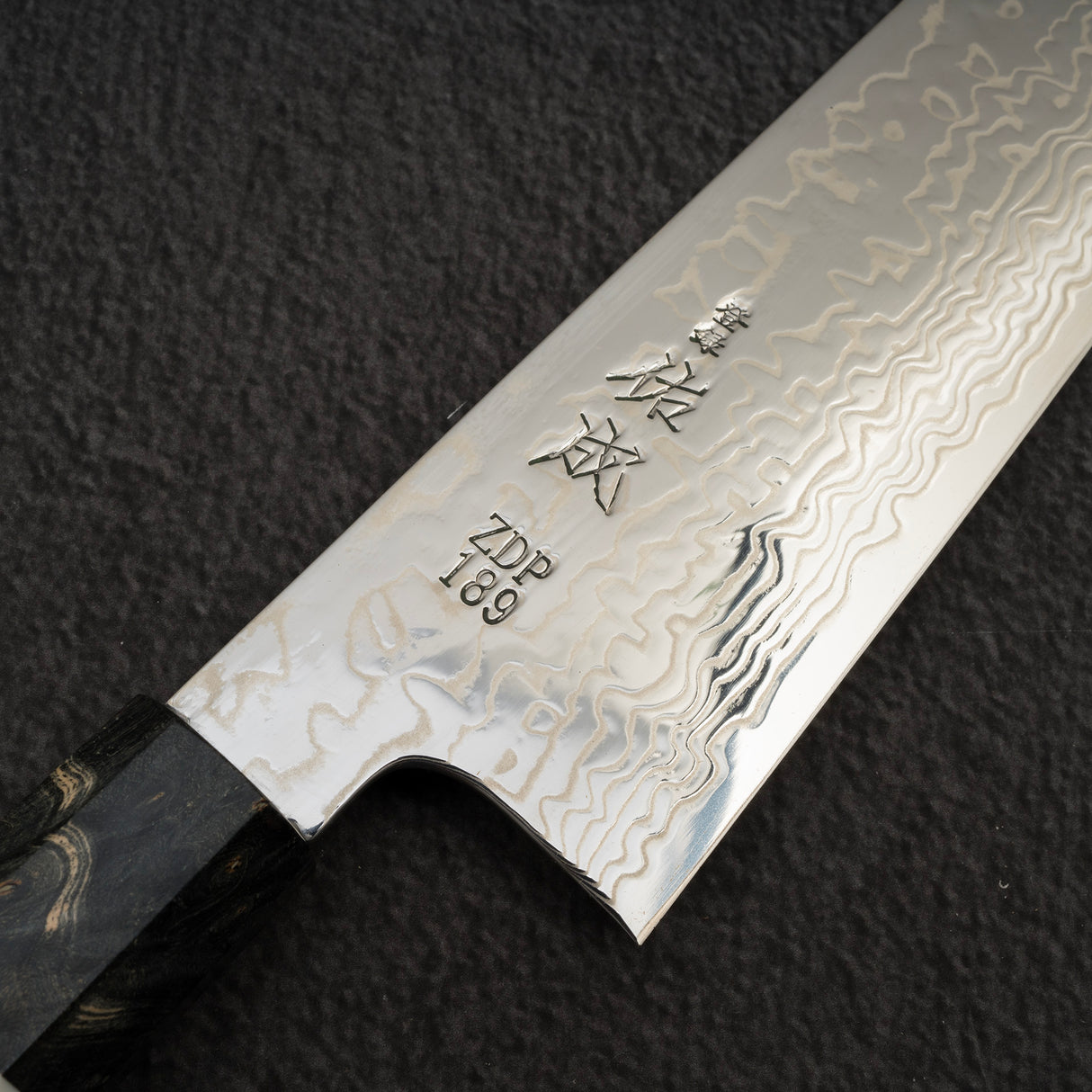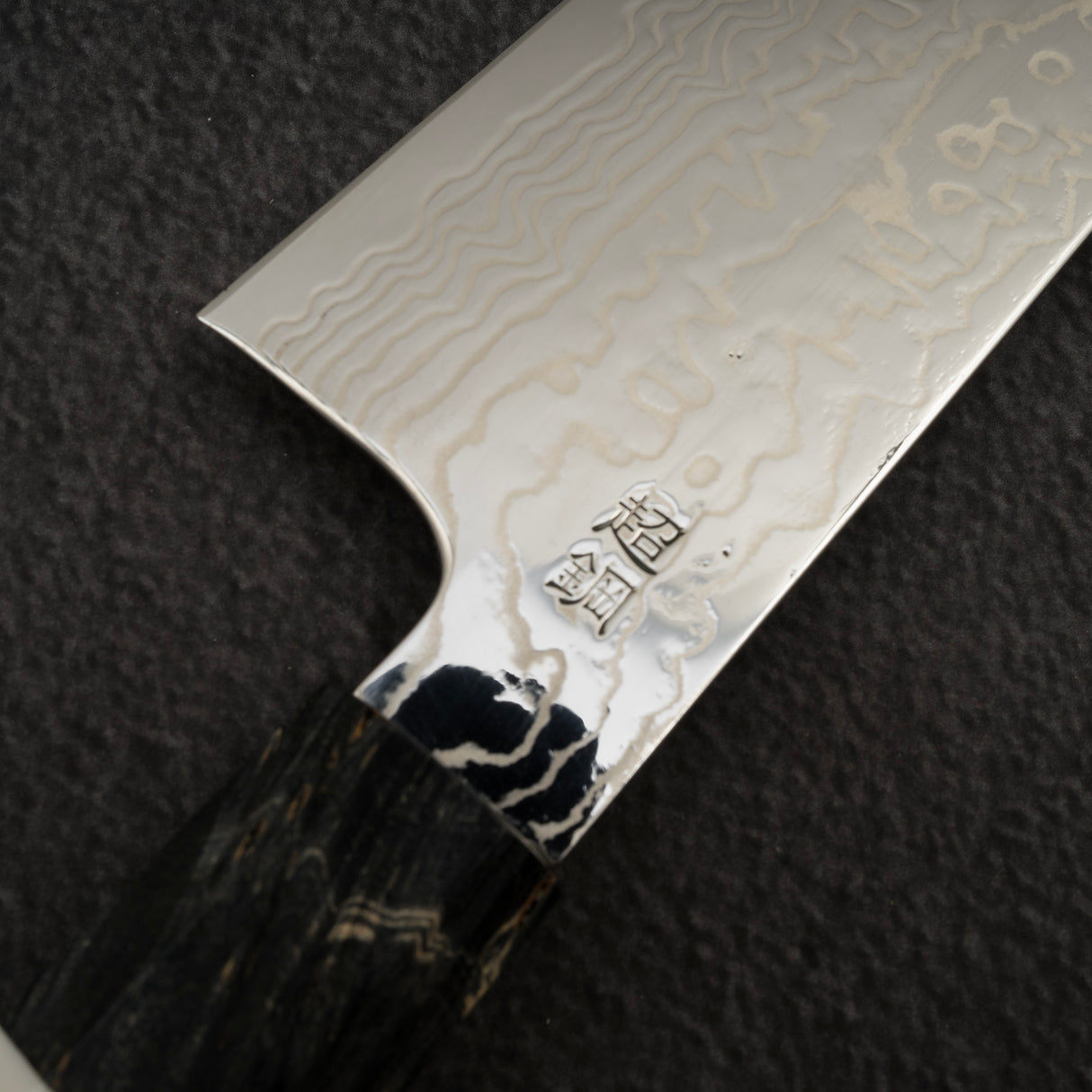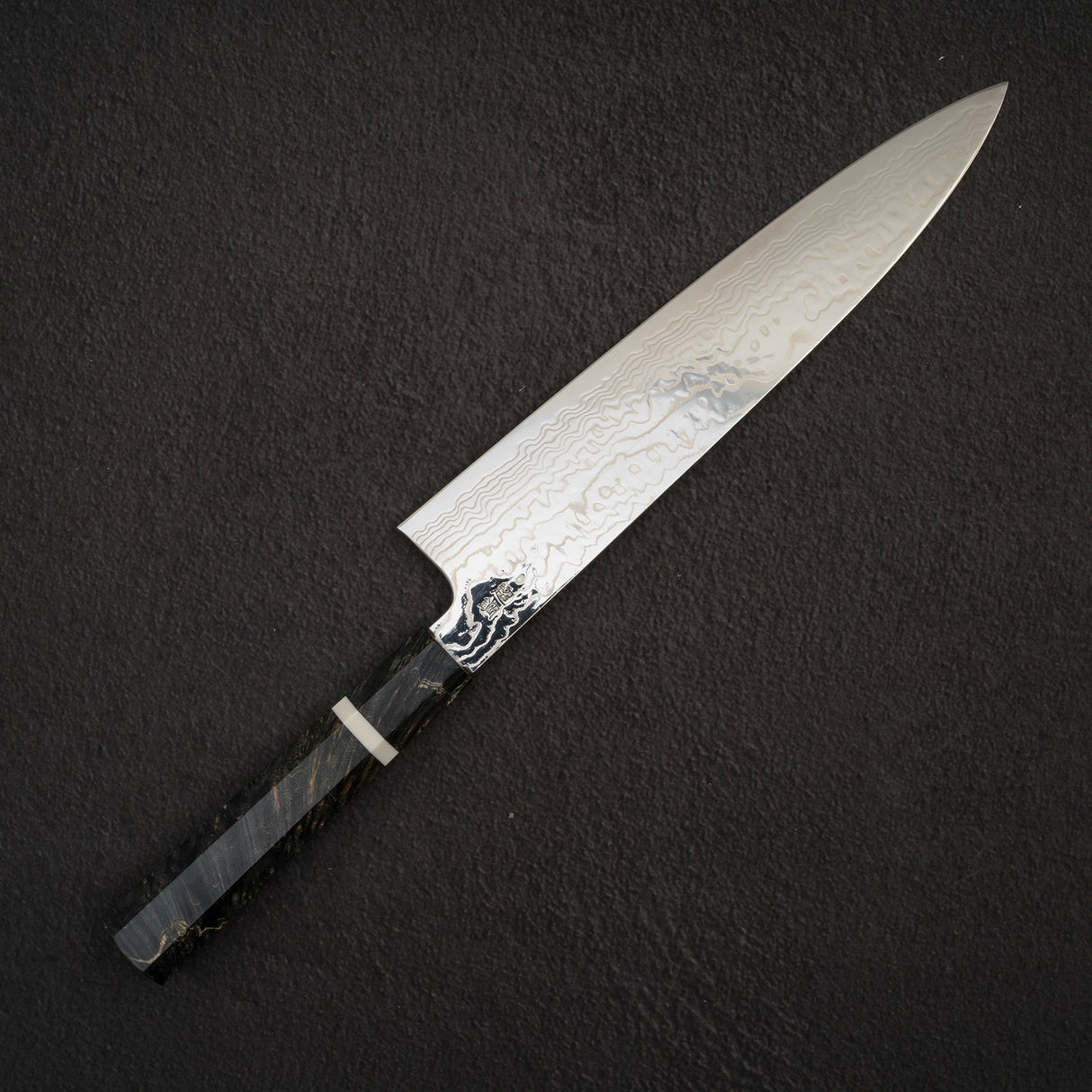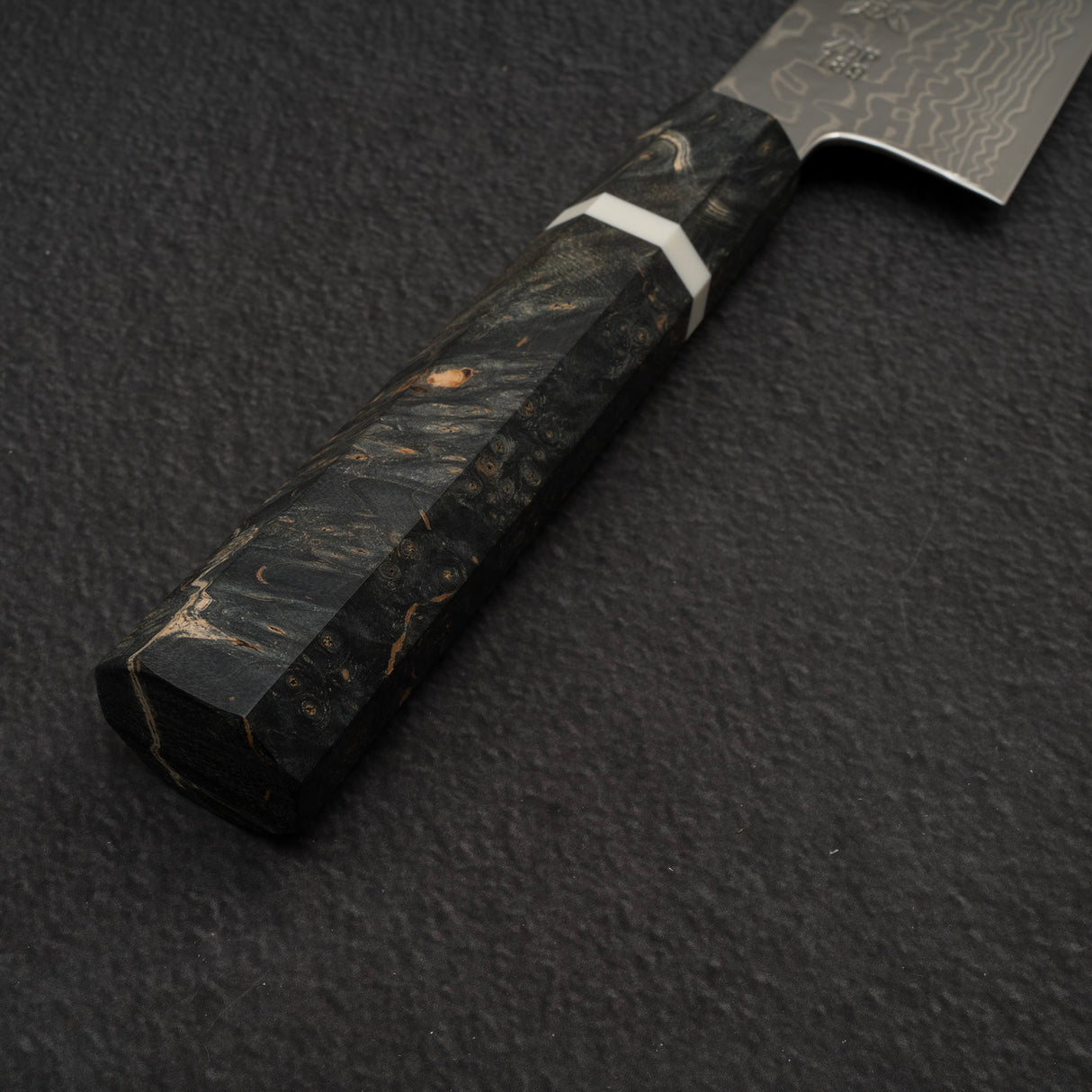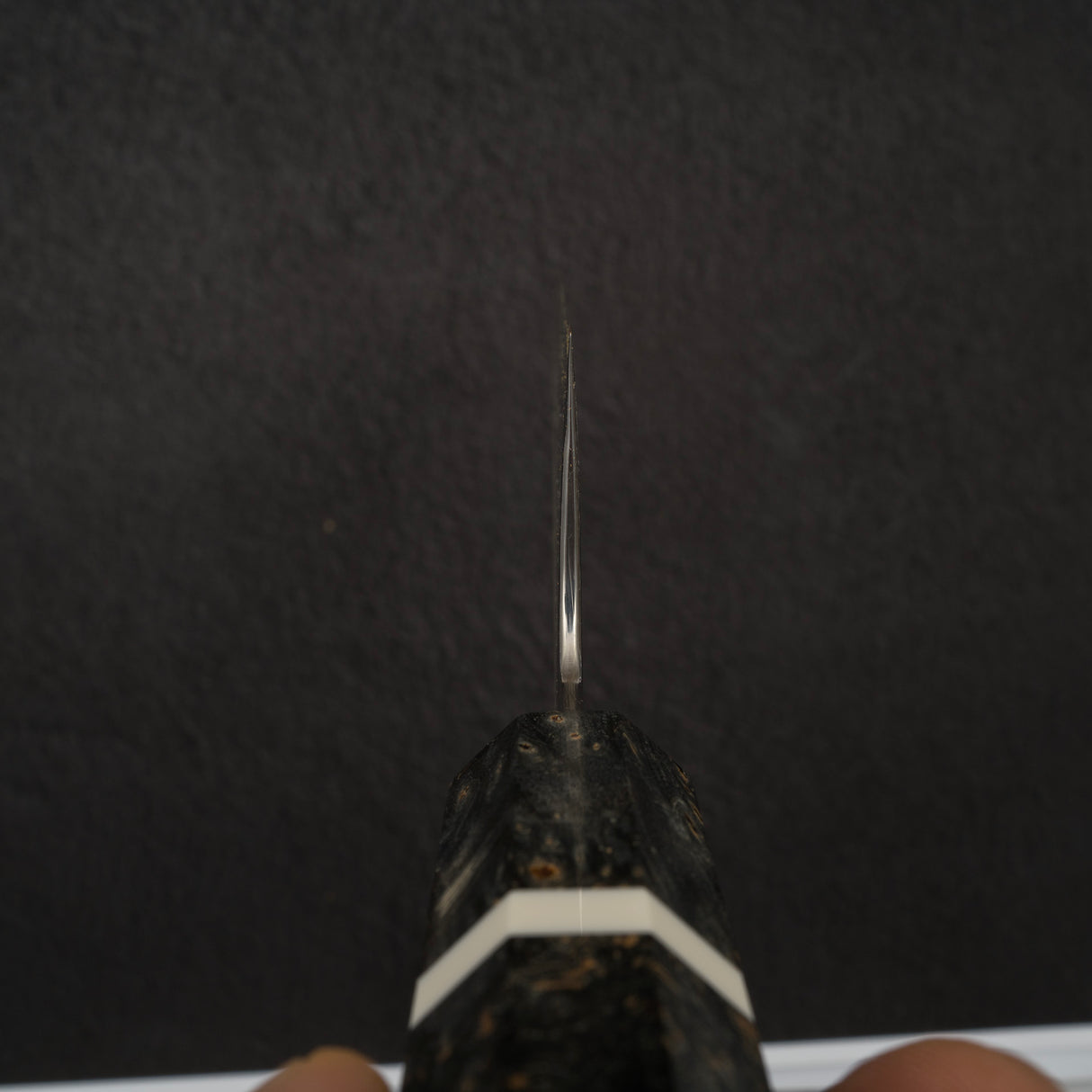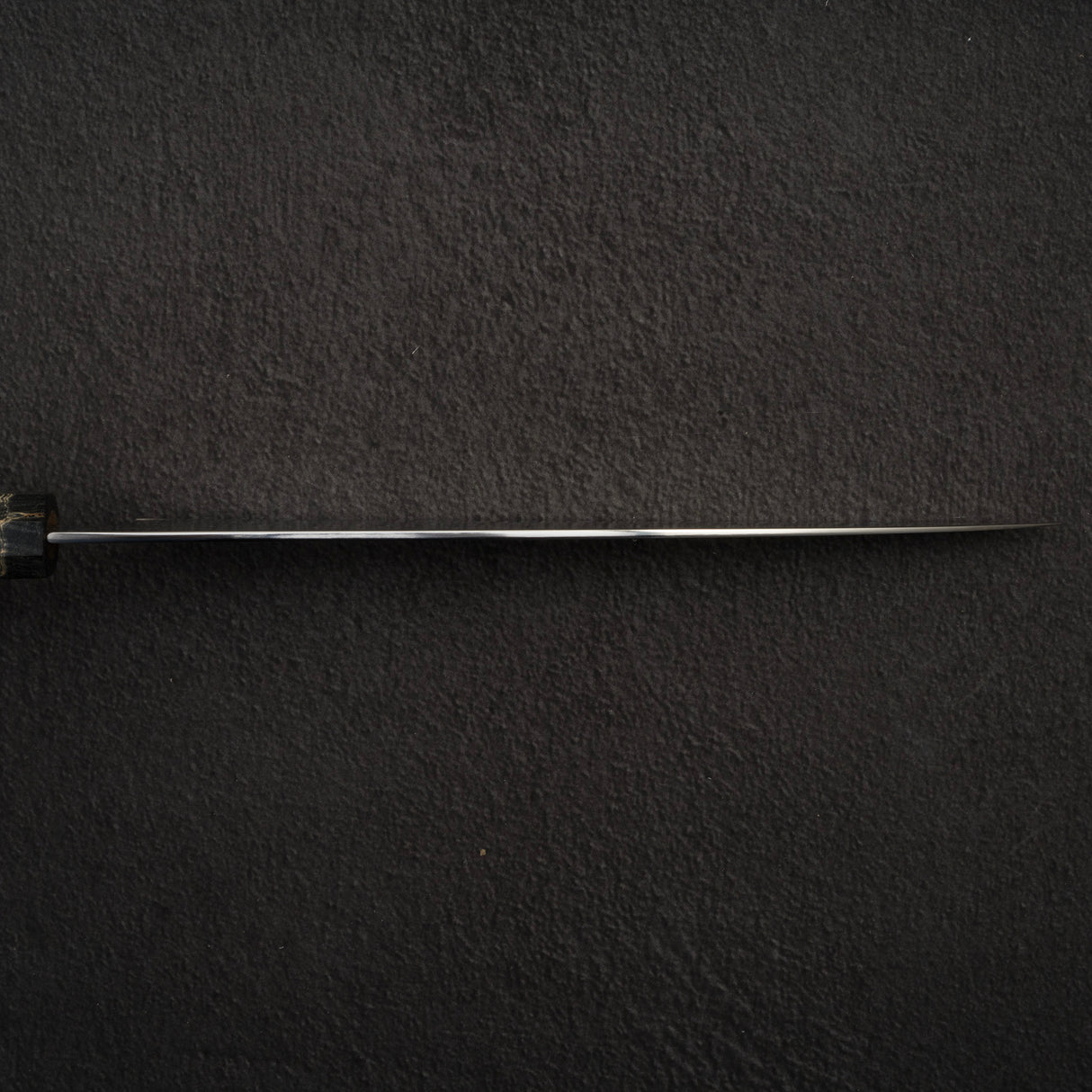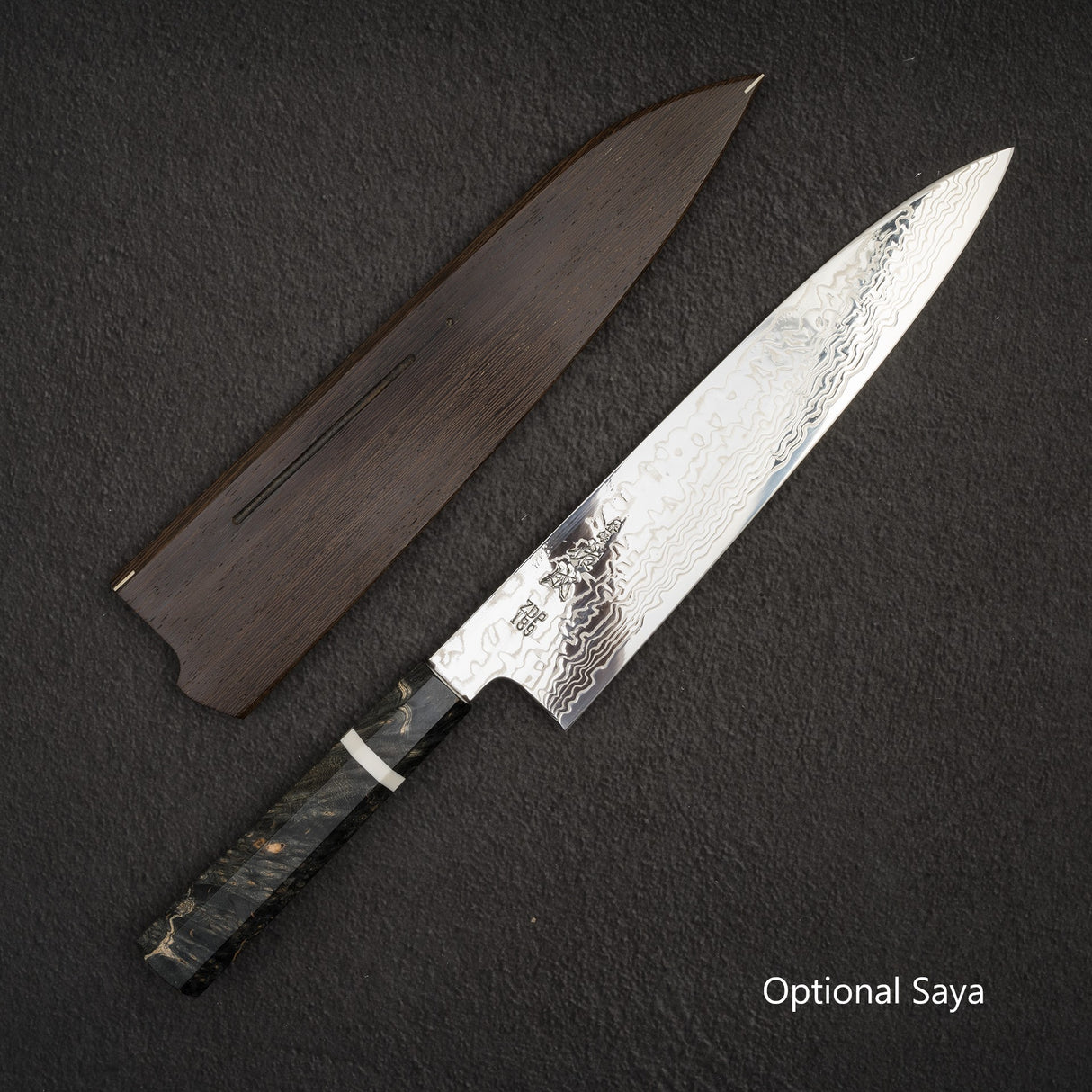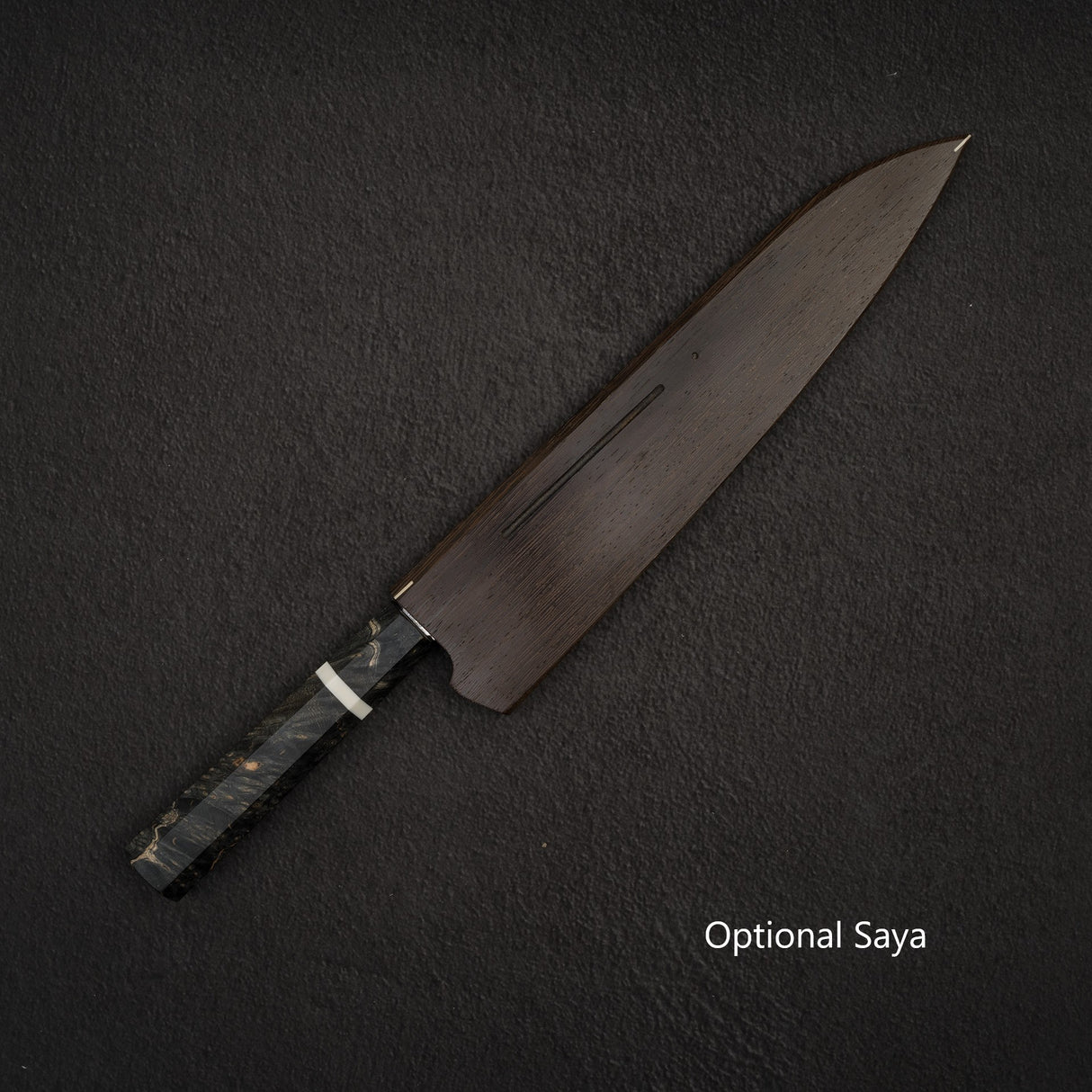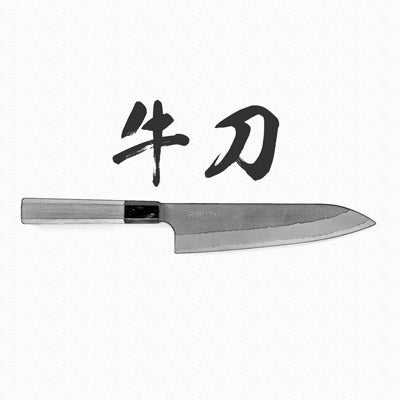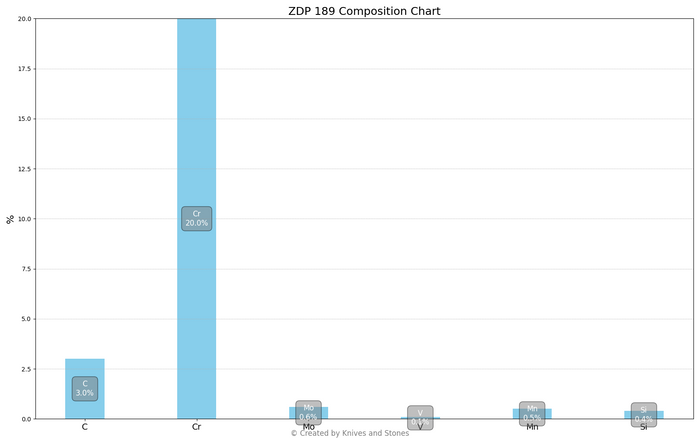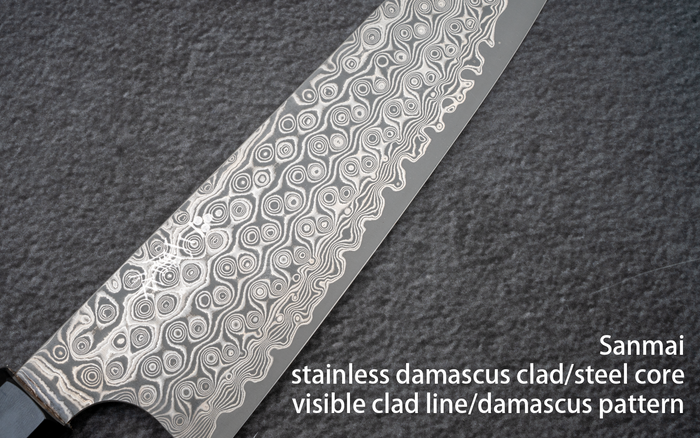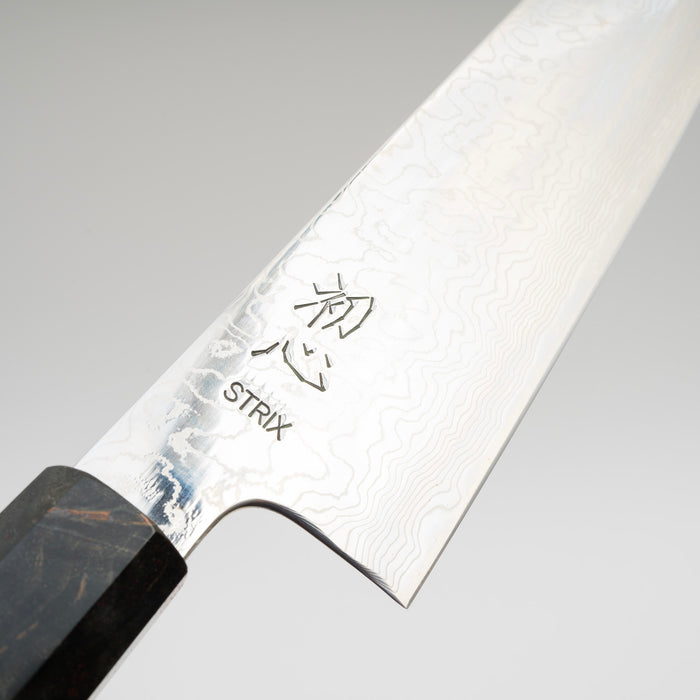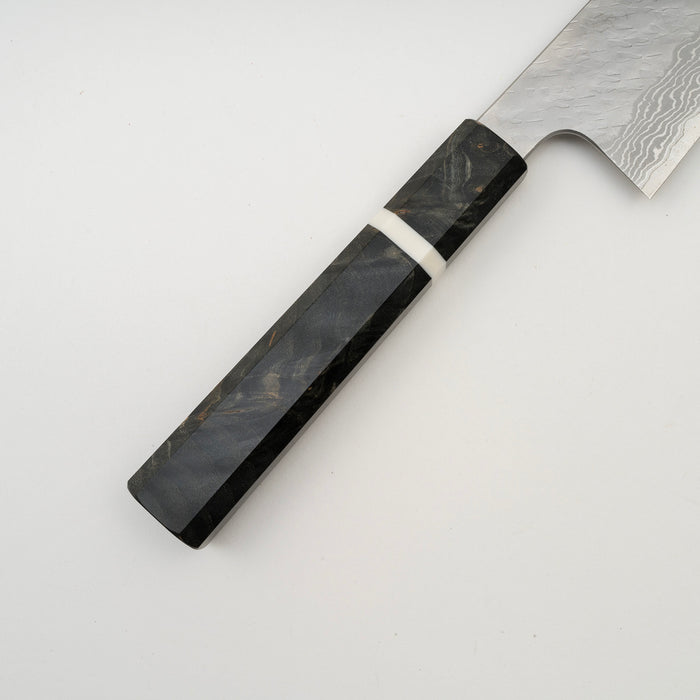Sukenari ZDP-189 Damascus Gyuto 270mm Birch Burl Handle
Sukenari ZDP-189 Damascus Gyuto 270mm Birch Burl Handle is backordered and will ship as soon as it is back in stock.
Couldn't load pickup availability
K&S Price: AU $929.95* inc. tax , vs:
| Store C | AU $978.07 | -5.28% |
* For overseas buyers you pay no GST (10%) and low shipping rate.
Last Update: 2024-07-06T01:01:26Z
Detailed Specifications
| Line | Sukenari ZDP-189 Mirror Damascus |
| Profile | Gyuto / Chefs Knife |
| Bevel Type | Double Bevel |
| Weight | 249 g 8.78 oz |
| Edge Length | 263 mm .10.35 inch |
| Heel Height | 52 mm .2.05 inch |
| Width @ Spine | 2.8 mm 0.11 inch |
| Width @ Mid | 2.4 mm 0.09 inch |
| Width @ 1cm from Tip | 1.1 mm 0.04 inch |
| Steel | ZDP-189 | Powdered Stainless |
| Blade Construction | Sanmai - Stainless Damascus Clad |
| Hardness (HRC) | 63 - 66 |
| Surface Finish | Mirror Polish |
| Handle | Octagonal Birch Burl with Spacer |
| Region | Toyama |
| Best for |
|
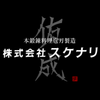
| Pros | Cons |
|
|
|
Care Instruction
- Don't cut hard things! Japanese knives are brittle so bone hacking is a NO NO!
- Wash with netural detergent after use, and wipe dry;
- Please don't wash knife with dishwasher, it will damage the wood handle;
- Be careful not to leave the knife close to a heat source for a long time;
- It is a lot more dangerous to cut with a blunt knife than a sharp knife!
- It is best to sharpen a Japanese knife regularly on a waterstone.

